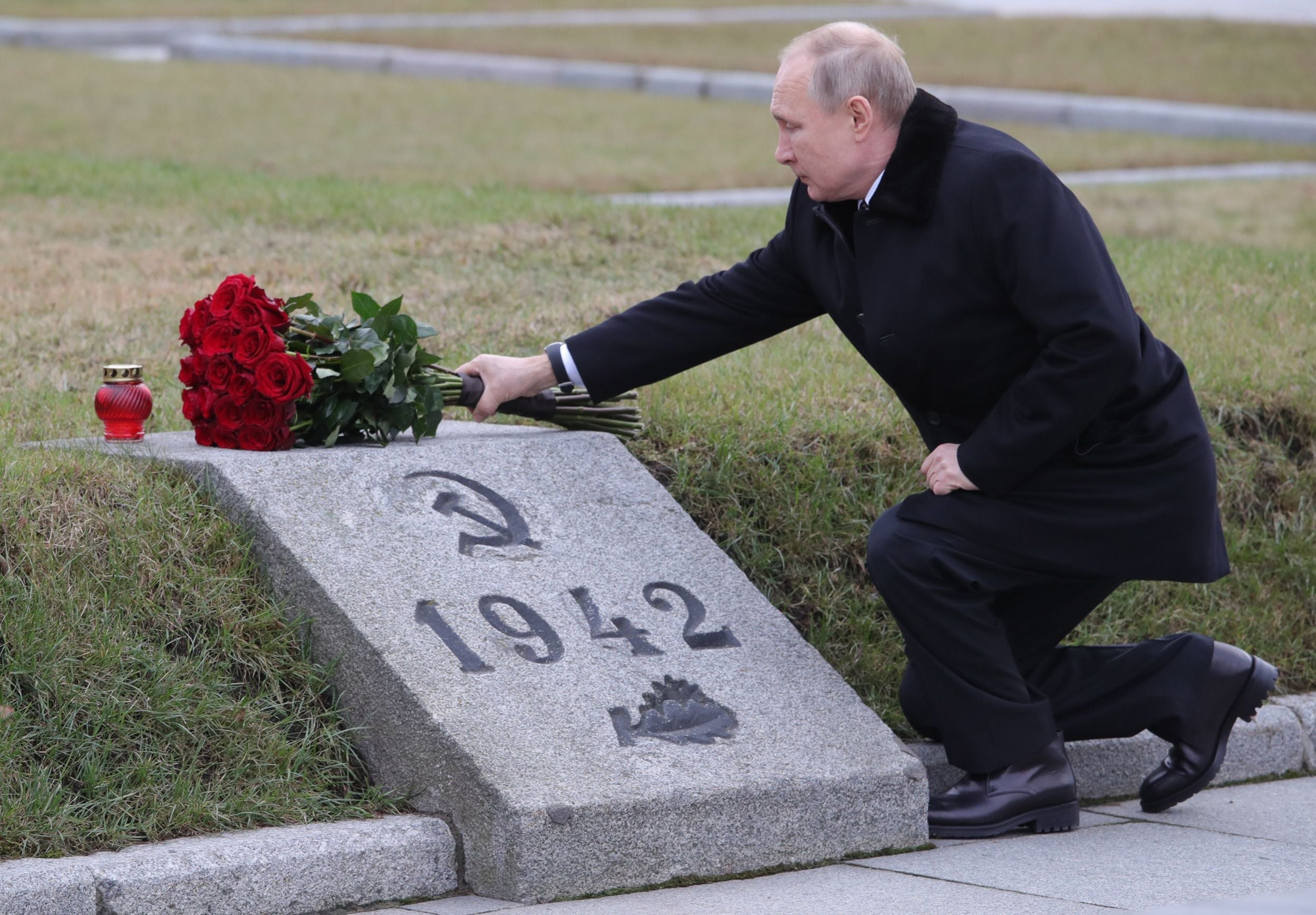Poland says Russia trying to ‘divert attention for dark wartime past’ with Holocaust accusations
‘The denial of responsibility for the Nazi-Soviet pact being propagated by the Russian authorities must be continuously met with a firm response from the custodians of the truth,’ writes Polish ambassador to UK

Your support helps us to tell the story
From reproductive rights to climate change to Big Tech, The Independent is on the ground when the story is developing. Whether it's investigating the financials of Elon Musk's pro-Trump PAC or producing our latest documentary, 'The A Word', which shines a light on the American women fighting for reproductive rights, we know how important it is to parse out the facts from the messaging.
At such a critical moment in US history, we need reporters on the ground. Your donation allows us to keep sending journalists to speak to both sides of the story.
The Independent is trusted by Americans across the entire political spectrum. And unlike many other quality news outlets, we choose not to lock Americans out of our reporting and analysis with paywalls. We believe quality journalism should be available to everyone, paid for by those who can afford it.
Your support makes all the difference.Vladimir Putin has been accused of rewriting history to turn killers who carried out bloody massacres into victims in an ongoing and bitter dispute which erupted after he claimed that Poland was complicit with Hitler’s Germany in the lead-up to the Second World War.
The Kremlin, claims Arkady Rzegocki, Poland’s ambassador to the UK, is seeking to deflect guilt and cover-up the legacy of the Nazi-Soviet pact – the Molotov-Ribbentrop treaty – which sought to secretly carve-up countries in eastern Europe between the two totalitarian powers.
Writing in The Independent, Mr Rzegocki says: “President Vladimir Putin is harking back to the USSR’s false wartime narrative and unfairly turning perpetrators into victims.’’
“The denial of responsibility for the Nazi-Soviet pact being propagated by the Russian authorities must be continuously met with a firm response from the custodians of the truth. It must be opposed so that the 150,000 Poles who died at the hands of the Soviets did not die in vain.”
“All these were part of Russia’s continuous efforts to divert attention from its dark wartime past and reinforce Mr Putin’s narrative of a strong, faultless country which is a natural successor to war-winning USSR.’’
The Ambassador’s charge comes during an extraordinary confrontation in the lead-up to the International Holocaust Memorial Day and the anniversary of the liberation of Auschwitz.
Mr Putin has lashed out on a number of occasions after the European Parliament passed a resolution last September urging Moscow to acknowledge the brutalities of its Stalinist past, maintaining that the country had escaped the scrutiny of Germany’s Nazi era.
But the Kremlin has accused the current Warsaw government of leading an anti-Russian campaign in the European Union, and retrospectively undermining the liberation of Poland from the Germans by Soviet forces.
President Putin and other Russian leaders have also charged Poland with working with the Nazis and virulent anti-semitism during the war.
In one speech, made to military officers in the Defence Ministry in Moscow, Mr Putin alleged that “essentially they colluded with Hitler. This is clear from documents, from archival documents...’’
Giving examples from the diaries of Józef Lipski, who served as Polish ambassador in Berlin from 1934 to 1939, Mr Putin pointed to promises made to put up a statue to Hitler in thanks for a German plan to deport Jews to Africa.
“A bastard, an anti-Semitic pig, you cannot put it any other way... it is people like that who today are tearing down monuments to the liberating warriors, the Red Army soldiers who freed Europe and the European people from the Nazis’’, he said.
The Polish government has protested strongly, reiterating that nearly six million Polish citizens, half of whom were Jewish, died in the Second World War.
But the allegation of white washing Holocaust history is one of which the Polish government has itself been accused, after making it an offence to use the term “Polish death camps” or discuss the Polish state’s involvement in Nazi war crimes – a move on which it was forced to backtrack after an international outcry.
Now the row has escalated, with other countries being drawn in.
More than a thousand Auschwitz survivors will travel to the site of the concentration camp in Poland on 27 January for the anniversary of its liberation. The event will be boycotted by Mr Putin.
This week, another commemoration will be held at Yad Vashem, the Holocaust memorial site in Jerusalem. More than 45 heads of state and international public figures are due to attend. Prince Charles will represent the UK in what will be his first visit to Israel.
But Poland’s president, Andrzej Duda, has pulled out after learning that he would not be allowed to speak at the event while Mr Putin would be addressing those present, along with others including France’s Emmanuel Macron, and US Vice-President Mike Pence.
The issue has caused controversy among Israelis.
Daniel Blatman, a specialist in Holocaust studies at the University of Jerusalem and chief historian at a museum of the Warsaw ghetto in Poland, told The Guardian: “I can understand that a representative of Russia should speak at the anniversary, since it was the Red Army which liberated the camp. But why should the president of France speak, when the French government deported 30,000 Jews to Auschwitz, but not the president of Poland?”
Join our commenting forum
Join thought-provoking conversations, follow other Independent readers and see their replies
Comments